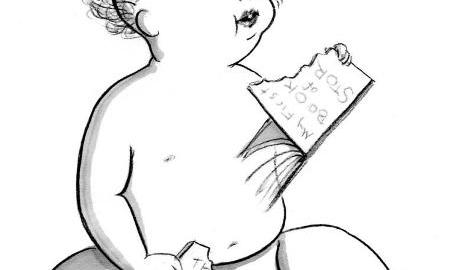Our Storied Nature

It is in our nature to need stories. We naturally think in story-logic. They’re a kind of people-physics. They’re biologically active, configuring how we feel in ways essential for our survival.
1. Like our language instinct, a story drive—an inborn hunger to hear and make stories —universally emerges untutored in healthy children. Every culture bathes its children in stories to explain how the world works and to educate their emotions. Perhaps story patterns could be considered another a layer of language patterning the character types, plots, and social norms important in our culture.
2. Stories deliver “feelings we don’t have to pay [full cost] for.” They’re like simulated experiments in people-physics, freeing us from the limits of our own direct experience.
3. “Stories the world over are almost always about people with problems.” Their deep pattern—summarisable as story = character(s) + predicament(s) + attempted extrication(s)—transmits (often tacitly) social rules and norms, defining what counts as violations, and what approved reactions are expected.
4. The “human mind is a story processor, not a logic processor.” We can use logic inside stories better than we do outside. For example, the Wason Selection Test can be solved by fewer than 10% as a logic puzzle, but by 70-90% when presented as a story involving detection of social-rule cheating.
5. Social-rule monitoring was evolutionarily crucial because “other people are the most important part of our environment.” In our ultra-social species, social acceptance mattered for survival. Violating social rules could cause exile or exclusion from group benefits (like protection or shared big-game).
6. Darwin understood how biologically active the stories in our social environments are, noting, “Many a Hindoo…has been stirred to the bottom of his soul by having partaken of unclean food.” The same thing eaten unknowingly would cause no reaction, so the story of the food, not the food itself, causes the “the soul shaking…remorse.” Stories configure the emotional reactions expected in our culture and their triggers—perhaps defining a sort of emotional grammar. We physiologically interact with stories, as if they’re real.
Any story we tell of our species, any science of human nature, that leaves out how important stories are in shaping what and how we feel is false. Nature shaped us to be ultra-social and so to be sharply attentive to character and plot.
Illustration by Julia Suits, The New Yorker Cartoonist & author of The Extraordinary Catalog of Peculiar Inventions.





